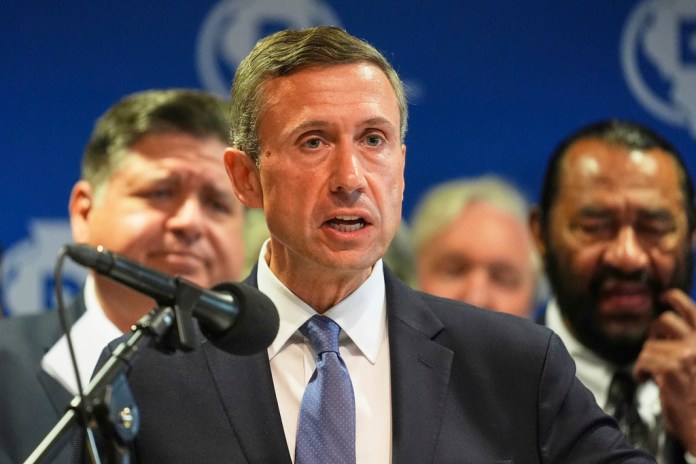Presidents who had remarkable adventures after they left office – Washington Examiner
The article discusses the post-presidential lives of three former U.S.presidents: Herbert Hoover, Gerald Ford, and Jimmy Carter, highlighting their important contributions and controversies after leaving office.
**Herbert Hoover**:
after losing the 1932 election against Franklin D.Roosevelt, Hoover focused on rebuilding his reputation as a humanitarian and diplomat, notably through international relief efforts during and after World wars I and II. He led significant initiatives to aid starving populations in Europe and served in various capacities to help address post-war humanitarian crises. His efforts included creating relief commissions that provided millions of meals and essential supplies to those affected by war.
**Gerald Ford**:
Ford, president from 1974 to 1977, remained politically active after his term, notably engaging in discussions about potentially serving as Ronald Reagan’s vice president during the 1980 election. However, ambition for equality in power led to tension between the two, particularly following an interview where Ford hinted at a “co-presidency.” This situation effectively ended any hopes he had for a political comeback after his defeat in 1976.
**Jimmy Carter**:
Carter, who faced numerous challenges during his presidency including economic difficulties and the Iran hostage crisis, became quite active in foreign diplomacy after leaving office. His notable actions included negotiating with North Korean leaders, which drew criticism from the Clinton governance for potentially undermining official diplomatic efforts. Carter’s post-presidential engagements have consistently attracted attention and criticism, illustrating his ongoing involvement in global politics.
these three presidents exemplify how former leaders can have varied and impactful post-presidential careers, ranging from humanitarian efforts to political re-engagements and significant diplomacy.
Three presidents who embarked on remarkable adventures after they left office
As President Joe Biden prepares to exit the White House, the 82-year-old may well enjoy a quiet retirement, unlike some of his predecessors, who enjoyed an active political career after leaving the Oval Office.
For many of the men who occupied the nation’s highest office during the last hundred years, the end of their presidencies merely marked the start of a new political chapter.
Here’s a look into three presidents who garnered both praise and criticism for their post-White House escapades.
HOW TRUMP’S PROMISE TO ABOLISH THE DEPARTMENT OF EDUCATION WOULD WORK
Herbert Hoover
After the 1929 stock market crash happened on his watch, Herbert Hoover faced censure for his handling of the economic crisis, which helped launch the Great Depression. Ultimately losing his bid for a second term in 1932 to Franklin Delano Roosevelt, Hoover spent the next few decades rebuilding his reputation as an international relief champion and political diplomat.
Credited with saving the lives of millions of starving Europeans, Hoover played a major role in carrying out international relief efforts for the United States during and after World Wars I and II. Building on his experience helping over 9 million malnourished Belgian and French citizens through his Commission for Relief in Belgium and serving as program director of the American Relief Administration during the First World War, the “Great Humanitarian” once again helmed critical relief efforts following his presidency as World War II engulfed the globe decades later.
ANTI-ABORTION ADVOCATES WORRY RFK JR. WILL WIELD HHS POWERS AGAINST THEIR CAUSE
After Adolf Hitler invaded Poland in 1939, Hoover created the Commission for Polish Relief, which delivered 150 tons of clothing and blankets within its first few months of operating, organized kitchens that were serving 200,000 meals a day by 1940, and aided Polish refugees.
As the conflict drew to an end in 1945, Hoover pitched his services as the country’s secretary of war to President Harry Truman. Although he declined the offer, Truman appointed Hoover to lead postwar humanitarian efforts by heading the Famine Emergency Committee, marking the start of a long and unusual friendship between the two men.
“Mr. President, since 1932, no one has asked me to do anything for my country. You are the first one,” Hoover said to Truman, according to historian Robert Ferrell.
Hoover and his team traveled to 38 different countries to carry out the Famine Emergency Committee’s goal of aiding 150 million people across war-torn Europe and Asia.
MEET THE NEW CONGRESS: THE HOUSE AND SENATE FRESHMEN ELECTED TO SERVE NEXT YEAR
“In two wars I served amidst famine. And in the war-shattered aftermath, I directed reconstruction in many nations. Uppermost in the minds of plain people everywhere was that war should cease and that peace would come to the world,” Hoover reflected in 1962.
In 1947, Truman asked Hoover for his help once again, appointing him to head a commission to reorganize the executive branch of the federal government. Hoover accepted, even later leading a second “Hoover Commission” at President Dwight Eisenhower’s request from 1953 to 1955.
An estimated 72% of the first commission’s proposals to reduce red tape and streamline postwar bureaucracy were implemented, and 64% of the second study’s recommendations were adopted, according to the Citizens Committee for the Hoover Report. The commissions saved the federal government almost 10% of its budget, per the Harvard Business Review.
“Truman respected Mr. Hoover’s integrity and ability and gave him more or less of a free rein,” the New York Times reported following the end of the two commissions.
Before his death in 1964, Hoover also influenced the Kennedy family and Richard Nixon, who mentioned the former president multiple times in his autobiography RN: The Memoirs of President Nixon.
Joseph Kennedy, the political dynasty’s patriarch, served on the Hoover Commission and introduced the former president to his famous sons. Then-Sen. John F. Kennedy even chaired a Senate subcommittee on the commission’s recommendations.
After Nixon narrowly lost the presidential race to John F. Kennedy in 1960, he later said Joseph Kennedy reached out to Hoover to bring the two candidates together for a show of unity.
As president in 1961, John F. Kennedy asked Hoover to be the honorary chairman of the National Advisory Council for his global humanitarian group, the Peace Corps, although the 86-year-old former president declined the position due to his advanced age.
PROGRESSIVES FUME THAT BIDEN SHOULD USE PARDONS TO END MASS INCARCERATION, NOT BAIL OUT SON
Gerald Ford
Gerald Ford, who served as the country’s 38th president from 1974 through 1977, was one of the only chief executives in recent memory to flirt with a political comeback after leaving the White House.
The saga played out at the Republican National Convention in 1980, as Ronald Reagan, the party’s nominee, weighed selecting Ford as his vice presidential running mate.
The two men were former rivals, as Reagan had unsuccessfully challenged Ford to become the Republican Party’s nominee during a grueling contest in 1976.
But four years later, Reagan decided it could be a politically savvy move to have Ford by his side. Ford, however, wasn’t so enthusiastic about a downgrade from the Oval Office to historically middling vice presidential material and continued to negotiate a role with more authority during the convention.
The affair blew up when Ford gave an interview to CBS anchor Walter Cronkite, who proposed the former president might be angling for a “co-presidency.”
BIDEN ADMINISTRATION RULEMAKING BLITZES AIM TO TRUMP-PROOF THE FEDERAL GOVERNMENT
Ford didn’t deny Cronkite’s suggestion, instead agreeing that he “would not go to Washington and be a figurehead.”
Reagan was reportedly outraged by the idea Ford wanted equal powers.
Pollster Richard Wirthlin, who watched the Cronkite interview with Reagan, said the Republican nominee “sat up in his chair and said, ‘Did you hear what he said about a co-presidency?’”
“When they said it out loud, it suggested Ford would be a co-president, which was not an image [Reagan’s people] wanted to project and it’s also impractical,” presidential historian Jeffrey Engel, founding director of the Center for Presidential History at Southern Methodist University, told PEOPLE. “When someone busts in the door saying, ‘Mr. President, Mr. President,’ you only want one person saying, ‘Yes?’”
The incident marked the end of any ambitions Ford harbored of a great political comeback after suffering a stinging defeat from Jimmy Carter in 1976, as Reagan subsequently tapped George H.W. Bush to be his running mate.
HERE ARE THE HOUSE REPUBLICANS WHO KEPT THEIR SEATS IN BIDEN-WON DISTRICTS
Jimmy Carter
Known for overseeing economic decline, the Iran hostage crisis, and a controversial decision to cede control of the Panama Canal, Carter remained unusually politically active during his post-White House years, particularly garnering attention for repeated conflicts with the Clinton administration.
The 39th president gained national attention, as well as former President Bill Clinton’s ire, in the 1990s when, flanked by CNN’s television cameras, he publicly negotiated foreign policy with North Korean dictator Kim Il Sung. It was in September 1994 that Carter flew to North Korea as Clinton weighed a preemptive strike on the country’s nuclear facility.
While the White House approved Carter’s visit after some haggling, which triggered the softening of relations between the two countries, the former president said the move garnered a “negative reaction” from the Clinton administration. The New York Times also reported at the time that U.S. officials “had not expected to get swept into negotiations that were being carried out on television.”
Carter “immediately touched off a squabble with the Clinton Administration over whether North Korea had specifically offered to freeze its nuclear weapons development project,” the outlet wrote.
WHAT MAGA AND THE GOP WILL LOOK LIKE IN A POST-TRUMP ERA
Carter influenced the political scene again when his Arab-Israeli peace talks during his time in the White House helped U.S. negotiators prepare for Clinton’s high-stakes 2000 Camp David meeting with Israeli and Palestinian leaders as he outlined his vision for a major Middle Eastern land-for-peace deal.
However, in 2006, Carter made waves for publicly questioning the results of the Camp David meeting during a major foreign relations speech and in a book he published that year.
Reacting to Carter’s book titled Palestine: Peace Not Apartheid, Dennis Ross, who served as Clinton’s special envoy to the Middle East, slammed the former president for “badly misrepresent[ing] the Middle East proposals advanced by President Bill Clinton in 2000” during a 2007 op-ed, arguing that Carter had “undermine[d], in a small but important way, efforts to bring peace to the region.”
Clinton himself spoke out against the book, saying, “If I were an Israeli, I wouldn’t like it because it’s not factually correct and it’s not fair.”
“I don’t know where his information (or conclusions) came from, but Dennis Ross has tried to straighten it out, publicly and in two letters to him,” he added.
The book stoked further controversy from critics who labeled Carter an antisemite for his perspective on the long-standing conflict between Israel and the Palestinians. Fourteen members of the Carter Center, an advisory board with the former president’s human rights organization, resigned over the book, saying it was unfairly biased against Israel. Carter later apologized over one sentence in particular that seemed to justify terrorism against Israel by saying that Palestinian suicide bombings against the Jewish nation should end only when it accepts the ”international laws and the ultimate goals of the Roadmap for Peace.”
Despite his foreign policy gaffes, Carter’s decades of humanitarian work helped earn him a warm place in people’s hearts, with surveys now ranking him as one of the country’s most popular former presidents.
" Conservative News Daily does not always share or support the views and opinions expressed here; they are just those of the writer."




